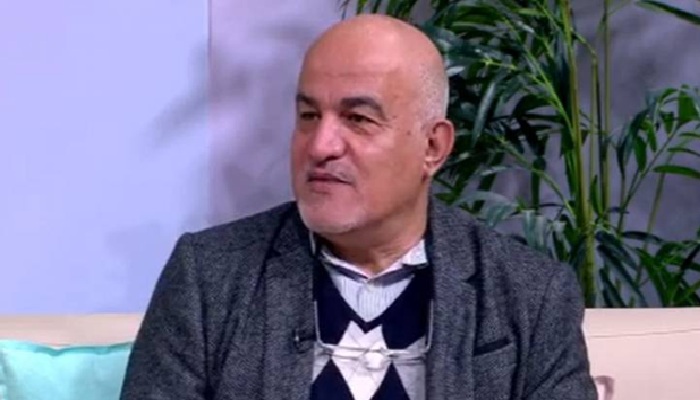
Afrasianet - The Trump plan is not the first of its kind in the history of our struggle with the colonial powers, as we have seen similar plans in Palestine and Iraq, all of which have ended in failure and turned into chapters in the history books.
Trump's peace plan in Gaza has provided fertile media and political material that occupies analysts and observers for a period of time, and may turn into a media topic that covers long hours of broadcasting, once it reaches the implementation stage.
Many found in the Trump plan the only way out of their crises, and they were quick to announce their acceptance of the plan as it is, and the Ramallah Authority even thanked President Trump for his efforts to achieve peace. As for the resistance public, they are worried, as they know that the resistance was left alone after the blows directed by the enemy to the fronts of support, as it is between the hammer of the humanitarian situation resulting from the enemy's genocidal campaign in Gaza, and the anvil of direct and indirect political pressures exerted by the enemies and brothers on it.
History tells us that Trump's plan is not the first of its kind in the history of our struggle with the colonial powers, as we have witnessed similar plans in Palestine and Iraq, all of which ended in failure and turned into chapters in history books, narrated by researchers and historians, and the struggle of the peoples for their liberation and independence continued despite the defeats, conspiracies and brutality of the colonizers.
In Palestine, in November 1935, Britain proposed the formation of a legislative council consisting of 28 members—11 Muslims, 3 Christians, 7 Jews, and 5 British officials—to be headed by a neutral person from outside Palestine. A few months after this proposal, the Great Palestinian Revolt (1936-1939) took place.
In Iraq, the United States installed Paul Bremer as governor of Iraq, disbanding the Iraqi army, facilitating the plundering of Iraq's wealth, and working with Western intelligence services to establish terrorist organizations such as ISIS, which he exploited to justify the continued occupation of Iraq, and to spread chaos and wars in the region.
Today, the colonialists seek to repeat history (as a farce) through Trump's plan, which is wrapped in a wrap of peace, but seeks to get its hands on one of the most important keys to the situation in our region, represented by the Palestinian cause. October 7 proved that the occupation entity is incapable of withstanding the will and action of the resistance in the region, and that the official Arab regime, despite its complicity, is unable to support the survival of the Zionist entity as long as there is resistance on the ground that inflames emotions and makes liberation a possible possibility.
October 7 highlighted the crisis of the imperialist project in our region, with its settlement part, represented by the Zionist entity, and its part aimed at dominating trade routes and various wealth, which constitutes the essence of this project. It has become clear that the solution to the crisis of the colonial project will only be achieved by eliminating all forms of resistance.
The colonial powers provided the political and military cover for the occupation entity to turn from an imperialist spearhead in the region to an expansionist colonial power occupying territories in Syria and Lebanon, and attacking Yemen, Iran and Qatar, and presented the Palestinians with the lie of the "two-state solution" conference from which the master of the White House decided to deduct part of the Palestinians' share from it, and to occupy and manage it before the ink of the UN conference resolution dried, in light of Arab approval and Palestinian thanks.
What is required in the colonial era is to disarm the resistance, not only in Palestine, but also in Lebanon and elsewhere in the world. The goal is to make the people defenceless from any possibility or ability to confront the colonial plans, whether it is by displacing and evacuating the land from its original inhabitants in favor of an occupation settlement project, as is the case in Palestine, or subjecting the resistance to an isolationist sectarian project in harmony with the Zionist project, as in the case in Lebanon, or subordinating the national choices of the peoples to independence, prosperity and control of their abilities Patriotism, as in Iran or Venezuela.
Conspiracies in all their forms were one of the most important means of achieving the colonizers' goals, and the cooperation of some of those who betrayed their homelands and joined the ranks of colonialism in order to achieve their goals as individuals or classes was a tool used by colonialism to break into the consciousness of societies and portray defeat and dependence as an achievement that injects blood and achieves prosperity in its narrow sense. It explodes when no one expects it, and it makes achievements that seemed impossible.
Despite all the despair and frustration that surrounds the events, there are embers waiting for the opportunity to turn into flames. The revolutionary is optimistic by nature. Our task today is to support the resistance, whatever its field choices, and to raise our voice in defense of the idea of resistance and its approach, and just as the resisters throughout history have confronted and defeated the colonizers, we must believe that victory is entrusted to us, by our will and by our actions, regardless of what has happened and is happening on the ground. The conflict between good and evil remains as long as humanity remains, and we are the good and the illusion of evil.
